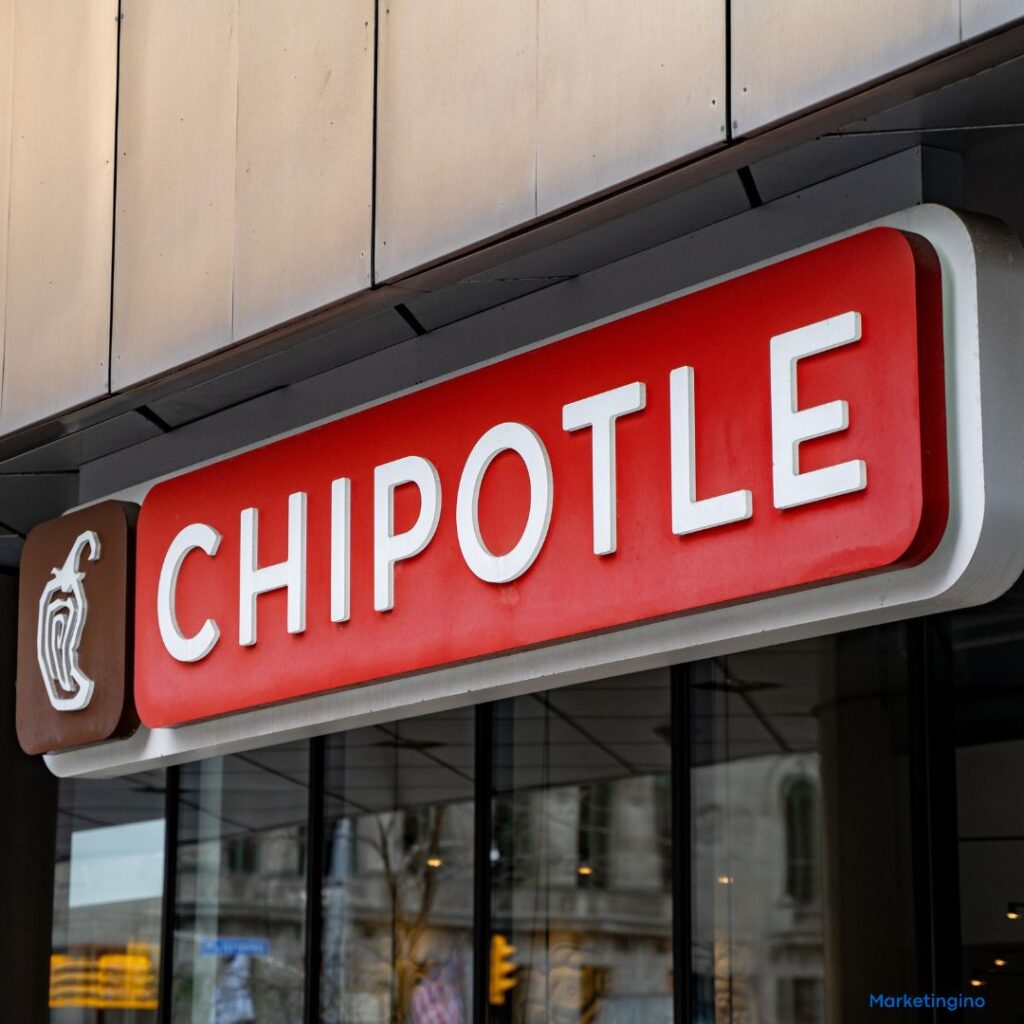Chipotle Mexican Grill has successfully carved out a niche in the fast-casual dining sector by offering fresh, high-quality ingredients and a commitment to sustainability. Its marketing strategy has played a significant role in its growth and popularity. Here’s a detailed look at how Chipotle markets its brand and continues to attract and retain customers.
Understanding Chipotle’s Marketing Strategy
Chipotle’s marketing strategy focuses on transparency, sustainability, customer engagement, and leveraging digital channels. The core elements of Chipotle’s marketing strategy include brand positioning, target market identification, product differentiation, and integrated marketing communications.
Brand Positioning
Chipotle positions itself as a provider of “food with integrity,” emphasizing its use of fresh, responsibly sourced ingredients. The brand focuses on quality, sustainability, and ethical sourcing practices, appealing to health-conscious and environmentally aware consumers.
Key Tactics:
- Taglines and Slogans: Memorable taglines such as “Food with Integrity” and “Real Ingredients, Real Flavor” encapsulate the brand’s commitment to quality.
- Visual Identity: Chipotle’s branding uses earthy tones and clean, simple designs to reflect its focus on natural ingredients and simplicity.
Target Market Identification
Chipotle targets a broad demographic that includes millennials, young professionals, and families who value healthy eating, convenience, and sustainability. The company tailors its messaging to resonate with these groups by highlighting its fresh ingredients and ethical sourcing practices.
Key Tactics:
- Market Research: Continuous market research helps Chipotle understand the evolving preferences and behaviors of its target audience.
- Health and Sustainability: Marketing campaigns often focus on the health benefits of Chipotle’s menu items and the company’s sustainability efforts.
Product Differentiation
Chipotle differentiates itself through its commitment to fresh, high-quality ingredients and its customizable menu, which allows customers to create meals that suit their tastes and dietary preferences.
Key Tactics:
- Ingredient Transparency: Chipotle is transparent about its ingredients, often highlighting where they come from and how they are sourced.
- Menu Customization: Offering a customizable menu allows Chipotle to cater to a wide range of dietary needs and preferences, including vegetarian, vegan, and gluten-free options.
Integrated Marketing Communications
Chipotle employs an integrated marketing communications strategy to ensure consistent messaging across all channels, including in-store, digital, and traditional media. This approach helps to maximize reach and impact, creating a cohesive brand experience for customers.
Key Tactics:
- Digital and Social Media: Active engagement on platforms like Instagram, Twitter, Facebook, and YouTube allows Chipotle to connect with customers, share content, and promote new offerings.
- Email Marketing: Personalized email campaigns keep customers informed about promotions, new menu items, and company initiatives.
- Content Marketing: Chipotle creates engaging content, such as videos and blog posts, to educate customers about its sourcing practices and menu items.
Celebrity Partnerships and Influencer Marketing
Chipotle partners with celebrities and influencers to enhance its brand appeal and reach younger audiences. These endorsements help to create buzz and drive engagement on social media.
Key Tactics:
- Celebrity Endorsements: Collaborations with well-known personalities and influencers help Chipotle reach a broader audience and build brand credibility.
- Influencer Campaigns: Working with influencers who align with Chipotle’s brand values helps to promote menu items and sustainability initiatives authentically.
Sustainability and Social Responsibility
Chipotle’s commitment to sustainability and social responsibility is a cornerstone of its marketing strategy. The company emphasizes its efforts to source ingredients responsibly, reduce waste, and support local communities.
Key Tactics:
- Sustainability Initiatives: Marketing campaigns often highlight Chipotle’s efforts to use organic ingredients, support local farmers, and implement eco-friendly practices.
- Community Engagement: Chipotle engages with local communities through sponsorships, charitable donations, and educational programs about healthy eating and sustainability.
Experiential Marketing
Chipotle excels in creating memorable experiences for customers through experiential marketing campaigns. These initiatives engage customers directly and create lasting impressions.
Key Tactics:
- Live Events: Hosting events such as cooking classes, farm tours, and tastings allows Chipotle to engage with customers in a fun and interactive setting.
- Interactive Campaigns: Unique marketing stunts and activations, such as the “Boorito” Halloween promotion, generate buzz and encourage customer participation.
Digital Innovation
Chipotle leverages digital innovation to enhance customer experience and streamline operations. The company continuously explores new technologies to improve its service and marketing efforts.
Key Tactics:
- Mobile App and Online Ordering: Chipotle’s user-friendly app and online ordering system make it easy for customers to place orders and customize their meals.
- Loyalty Programs: The Chipotle Rewards program encourages repeat business by offering points for purchases, which can be redeemed for free menu items.
Chipotle’s marketing strategy is a blend of transparency, sustainability, customer engagement, and digital innovation. By understanding its target market, differentiating its products, and leveraging integrated marketing communications, Chipotle has built a strong and loyal customer base. As consumer preferences and market dynamics evolve, Chipotle’s commitment to quality, sustainability, and innovation will ensure its continued success.




